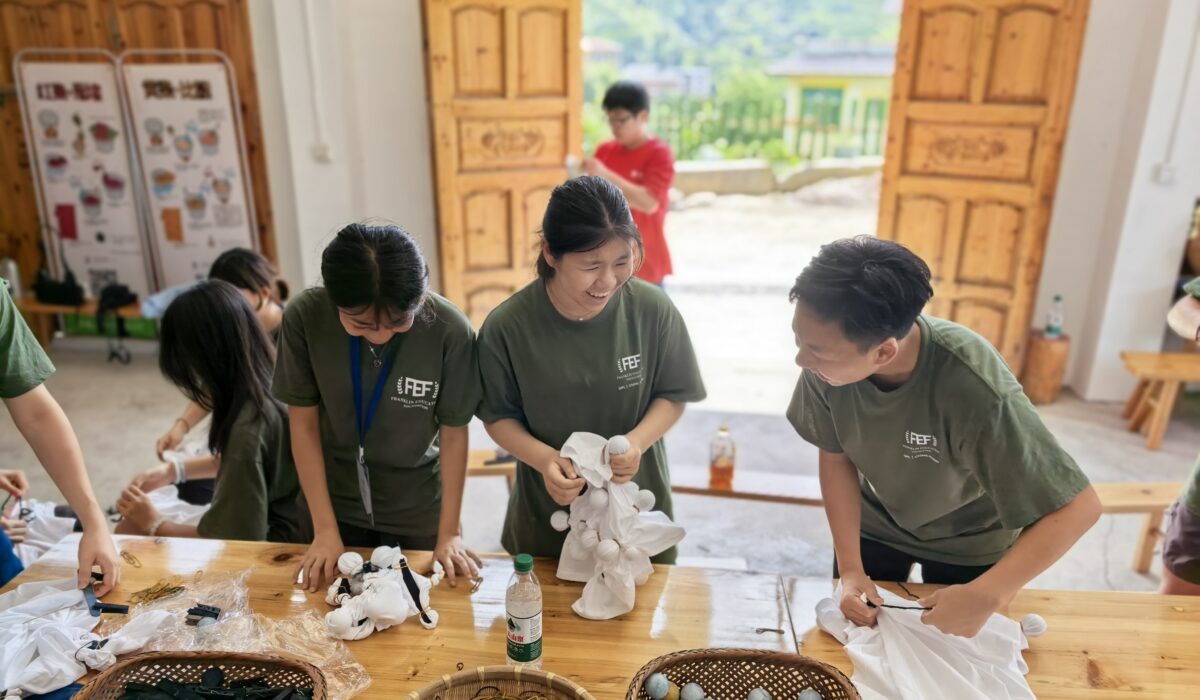What to Do in High School Winter Break?
Table of Contents
Why Winter Break Matters in High School
Winter break is often underestimated. While it may be shorter than summer vacation, it offers high school students a rare chance to rest, reset, and refocus. Positioned between two demanding semesters, this short break is more than a pause—it’s an opportunity to reflect on progress, strengthen skills, and prepare for the challenges ahead.
Used wisely, winter break can set you apart. Whether through structured study, skill building, or immersive programs, the decisions you make in these few weeks can leave a lasting impact on your academic journey, personal growth, and college applications.
What Can You Do During Winter Break?
1. Academic Exploration
Winter break is the perfect time to stretch your intellectual curiosity. Short courses, winter intensives, or online university modules allow you to explore subjects not always covered in high school. This exposure helps you sample potential majors, prepare for upcoming AP or IB exams, and experience college-level rigor in a low-stakes environment. By investing in academics now, you’re signaling to colleges that you use your time intentionally and are eager to grow beyond the classroom.
2. Creative and Skill Development
Beyond grades, colleges and future employers look for creativity and initiative. Winter gives you uninterrupted time to dive into passion projects—whether it’s writing a short story, building an app, or learning digital design. These projects don’t just sharpen skills; they leave you with tangible outcomes for portfolios or applications. More importantly, they teach persistence, problem-solving, and self-motivation—qualities that last long after winter ends.
3. Service and Volunteering
Giving back during winter break shows responsibility, empathy, and leadership. From tutoring peers online to helping local shelters, these experiences connect you with your community and broaden your perspective. Service is not only personally fulfilling but also demonstrates civic engagement—a quality highly valued by universities. Winter volunteering can be short yet powerful, reminding students that impact isn’t measured by duration but by sincerity and effort.
4. Winter Break Camps & Residential Programs for Teens
Immersive camps and residential programs for teens are among the most transformative ways to spend winter. Living away from home, even briefly, builds independence and adaptability. Structured programs balance workshops, group projects, and cultural exchange, ensuring growth both academically and socially. They prepare you for college dorm life, help you form friendships with peers worldwide, and offer mentorship you might not get elsewhere. This condensed, high-energy format ensures you return home with confidence, clarity, and skills that outlast the break.
5. Rest and Recharge
Finally, don’t underestimate the value of downtime. After a demanding semester, your mind and body need balance. Reading, journaling, exercising, or spending quality time with family allows you to reset and return to school refreshed. Proper rest also improves focus, creativity, and resilience—making you more productive in the long run. Winter break should leave you not just entertained, but truly rejuvenated.
How to Plan a Meaningful Winter Break
1. Set clear goals
Before making any plans, decide what you want out of your winter break. Is your priority academic improvement, leadership growth, or cultural exploration? Having a clear goal keeps you focused and helps you choose activities that truly add value instead of scattering your energy. A goal-driven winter break is easier to explain in future college essays and interviews.
2. Balance rigor with rest
Winter break is short, so it’s tempting to overcommit. But without rest, you risk burning out before the next semester even begins. When planning, combine structured activities like a winter break camp with downtime for reading, journaling, or family time. Balance ensures that you return to school not just more accomplished, but also refreshed and motivated.
3. Apply early
Many residential programs for teens and academic camps require applications months in advance. Waiting until winter to decide often means missing deadlines. By applying early, you not only secure a spot but also show initiative—a trait valued by program directors and colleges alike. Early planning gives you more options and reduces stress.
4. Budget and logistics
Even the best program can fall apart without careful planning. Consider travel, housing, tuition, and daily expenses. Factor in time zones if studying abroad, or safety measures if traveling independently. Families who plan finances and logistics early can better support the student’s experience, making it smoother and more enjoyable.
5. Reflect afterward
The learning doesn’t end when the program does. Journaling your experiences, collecting feedback from mentors, or even creating a short project recap helps you internalize lessons. Reflection connects short-term activities with long-term goals, transforming “just a camp” into a personal growth story you can share in applications, interviews, or future projects.

Top 5 Winter Break Camps / Residential Programs for Teens
The GPL Winter Session is a transformative residential program that blends leadership training with real-world service. Instead of lectures, students actively engage in projects such as microfinance, education outreach, or environmental conservation. Daily workshops and reflection sessions ensure participants not only act but also learn from their experiences.
By the end, students leave with leadership confidence, deeper cultural understanding, and stories that make compelling college application essays. GPL is ideal for those seeking a winter break camp that combines action, service, and personal growth.
-
Eligibility: High school students (grades 10–12 preferred), interest in leadership and service
-
Session Dates: Winter break, 7–10 days
-
Requirements: Application, short essay, possible recommendation or interview
-
Outcomes: Service experience, leadership growth, cultural awareness, stronger college profile
Cornell University Pre-College Winter Session
For academically driven high school students, Cornell University’s Pre-College Winter Session offers rigorous online courses across disciplines such as psychology, economics, computer science, and environmental studies. These two-week programs, held during January, provide students the opportunity to explore college-level academics and earn college credit from a prestigious Ivy League university.
Though delivered online, the courses are taught by Cornell faculty and follow the same curriculum standards as undergraduate classes. Students experience accelerated learning and develop independent study skills that strengthen future college applications.
Whether your student is eager to challenge themselves academically or wants to explore potential college majors during winter break, Cornell’s winter session offers a rewarding and structured experience.
Eligibility: High school students (typically grades 10–12)
Session Dates: Winter session (January)
Requirements: Application, academic transcript, optional recommendation letter
Outcomes: College credit, transcript from Cornell University, academic enrichment
Pratt PreCollege Winter Programs
For creative high school students, Pratt Institute’s PreCollege Programs provide short courses in art, design, architecture, and creative writing during the school year—including winter sessions. Taught by Pratt faculty, these programs allow teens to refine technical skills, explore artistic disciplines, and build a portfolio for future college applications.
The residential component gives students a taste of art school life, with access to studio spaces and peer critique sessions. Whether you’re preparing for an art major or simply exploring creativity, Pratt offers a winter break camp that nurtures imagination and innovation.
-
Eligibility: High school students (ages 15–18)
-
Session Dates: Fall, winter, and spring sessions
-
Requirements: Application, portfolio or sample work for some courses
-
Outcomes: Portfolio development, creative growth, potential college credit
Monash Global Winter Programs
Monash University in Australia offers Global Winter Programs, enabling students to take short courses abroad and gain academic credit during winter break. Participants study at partner universities, exploring disciplines from science to social studies, while immersing themselves in local culture.
This is more than an academic program—it’s a chance to live internationally, build independence, and experience global perspectives. Students may also be eligible for Monash Abroad Travel Grants to help fund their participation.
-
Eligibility: High school/college students approved via Monash Abroad criteria
-
Session Dates: Winter sessions (dates vary annually)
-
Requirements: Application, GPA requirement, host institution approval
-
Outcomes: Academic credit, cultural immersion, international networking
HKU Winter Programmes
The University of Hong Kong (HKU) runs a wide variety of winter programmes in partnership with institutions worldwide. Students can join short courses in Europe, Asia, and North America, blending academic exploration with cultural experiences. Courses cover a range of subjects—from humanities and social sciences to business and STEM.
With options for in-person, hybrid, and online participation, HKU Winter Programmes are accessible and flexible. They’re ideal for students looking to expand their academic horizons while connecting with peers globally.
-
Eligibility: High school/university students (criteria vary by program)
-
Session Dates: Annually during winter break
-
Requirements: Application, transcript, possible language requirement
-
Outcomes: Academic enrichment, cultural exchange, international perspective
FAQs About High School Winter Break
Q1. What to do when you’re bored in high school during winter?
Join a winter break camp, start a creative project, or volunteer locally. Even small initiatives can turn boredom into growth.
Q2. What are typical winter activities for students?
Popular activities include sports (skiing, skating), creative arts, reading, cultural exchanges, and community service projects.
Q3. What are fun high school events in winter?
Many schools host winter dances, talent shows, or fundraising drives. Residential programs for teens also offer fun cultural nights, group challenges, and bonding activities.
Q4. Why choose a winter break camp instead of just relaxing?
Because these camps are short, immersive, and productive. They help you build leadership, academic skills, and friendships while still leaving time to rest with family.
Redefining Winter Break
High school winters don’t have to be routine or uneventful. This short season can be a turning point—a chance to pause, reset, and take bold steps toward your future. Whether you spend it in a classroom, a studio, or a residential camp halfway across the world, winter break is your chance to shape the kind of student, leader, and person you want to become.
Winter break camps and residential programs for teens offer more than just structured schedules—they provide independence, community, and a safe space to experiment with new ideas. Pairing that with reflection and rest, you’ll return to school not only refreshed, but also more confident, focused, and inspired.
This winter, don’t just let the days slip by. Claim them. Turn your break into a story worth telling—one that prepares you not only for the next semester, but for everything beyond it.
By submitting this form, you are consenting to receive marketing emails from: IvyMax, 41111 Mission Blvd., Suite 200, Fremont, CA, 94539, https://ivymax.com/. You can revoke your consent to receive emails at any time by using the SafeUnsubscribe® link, found at the bottom of every email. Emails are serviced by Constant Contact
Interested in our program?
Complete the form below and we’ll quickly respond with detailed information, and answers to all your questions!

